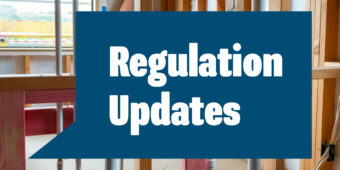Beating the second-year blues
14 Apr 2016, Business Tips, Featured, Prove Your Know How

A large number of New Zealand businesses fail in their second year of operating – if you’re just starting out, you needn’t join them
When people say that running your own business is one of the toughest things you’ll ever do, they’re not joking. Finding funding, customers and coming up with a plan that makes your business stand out from the crowd can be tough.
However, once a business is established, it can become one of the most rewarding aspects of your life. The first year of working for yourself presents obvious hardships, and many people make the assumption that from there on in it will be smooth sailing.
After surviving your first year, don’t fall into the trap of rushing to buy that new ute and those sparkly tools, because a huge proportion of New Zealand businesses fail in their second year.
There are a number of reasons for this happening.
Prepare for Tax
Part of the reason people may feel flush in their first year is largely because they haven’t yet had to make provisional tax payments.
Provisional tax is paid in instalments during the year in preparation for the expected year-end result. It is often estimated by the IRD based on the previous year’s results, plus 5%.
For example: if a business’s income tax payable in year one is $10,000, it will pay provisional tax of $10,500 the next year. If payments are missed, then the IRD will charge penalties and interest.
If a business made that $10,000 profit in year one, then it will essentially be paying two amounts of tax in one year – the balance for the first year and the estimated amount for the second. Cash flow will, therefore, immediately take a large hit for tax bills that weren’t present during the first year.
A good way to address this issue is to put aside 28% (the tax rate for companies) of net earnings at the end of each month into a savings account. This means that you will have enough money set aside for any tax payments.
Furthermore, given that you have already taken it out of the main cash flow accounts, it won’t be missed. By using a savings account, you will also earn interest on the balance.
Accounting for ACC
Another bill that businesses miss during the first year is ACC. Like provisional tax, it’s based on the previous year’s results. In this case, it’s based on monthly PAYE returns that are completed.
The amount a business pays is based on the level of salaries and wages in the company’s tax return. The rate is a lot higher for builders than it is for those other industries, due to the inherent risks of working on a building site.
The very first invoice you will receive from ACC is for the previous year. However, it also includes an estimated amount for the next income year – similar to provisional tax. Again, it’s a bit of a double whammy.
Keep in mind that the estimated invoice is based on the first year. If it was just you working on the tools and then you hired a couple of workers during the second year, you will receive another invoice the following year to account for any underpayment.
It can feel a bit like you’re chasing your tail, but it’s simply a fact of life. Knowing that your invoice grows with the level of your wage payments means that you can adequately plan for this.
Wages, PAYE and other payments
It is also crucial to keep in mind that other invoices will grow as your company does. PAYE and GST do not go away and it’s important to keep on top of them. Similarly, any missed payments to suppliers, subbies or employees could quickly lead to an empty worksite.
An important takeaway from all of this is the need for planning and communication. If you find yourself in a bit of strife, you need to establish which bills need to be paid immediately and those that can be delayed.
If you need to delay a payment, make sure you discuss this with the supplier. Communication always helps in any situation and keeps the relationship between yourself and the supplier strong.
The same goes for the IRD – if you are struggling to make payments, talk to them. Ask for an arrangement or a repayment plan and see if you can pay off the amounts in instalments.
By showing that you are willing to pay your bills and not avoid responsibility, it is more than likely that suppliers and the IRD will be happy to accept alternative arrangements. However, if you stay quiet, they will assume the worst.
If you have any questions about points raised in this article, or would like to discuss how your business is tracking, we can help. Please contact Peter van der Heijden at peter.vdh@crowehorwath.co.nz or your local Crowe Horwath advisor.
For the contact details of your local office, please visit:
www.crowehorwath.co.nz/locations or telephone 0800 494 569
Register to earn LBP Points Sign in



